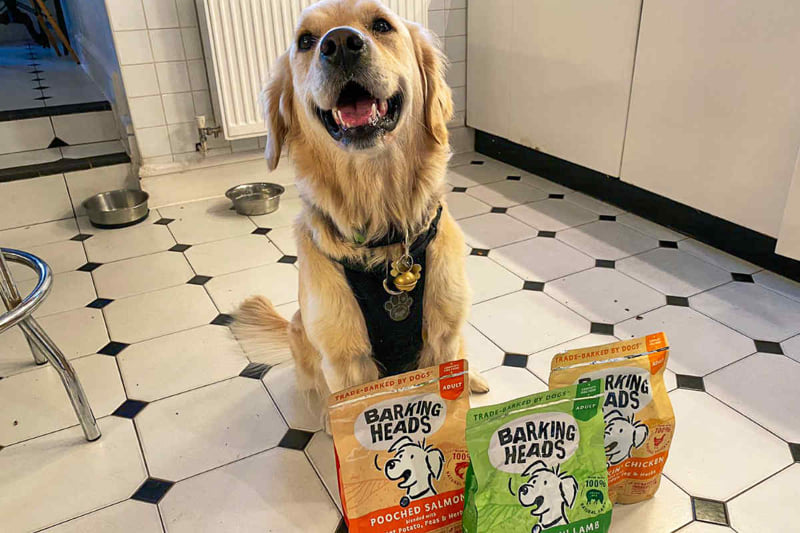When it comes to your dog’s health, diet plays a pivotal role. As more pet owners prioritize natural and high-quality options, Organic Dog Food has become a popular choice. This guide provides comprehensive care tips for your furry friend, emphasizing the benefits of incorporating organic food into their routine.
What is Organic Dog Food?
Organic Dog Food refers to meals made from ingredients grown and processed without synthetic pesticides, fertilizers, or artificial additives. This ensures your dog receives a natural, clean diet that promotes overall well-being.
Key benefits of Organic Food include:
- Improved digestion
- Boosted energy levels
- Reduced risk of allergies
- Shinier coats and healthier skin
- Long-term health improvements
When selecting organic options, always check for certifications like “USDA Organic” or similar labels that ensure quality and safety.

Transitioning to Organic Food
Switching to Organic Dog Food requires careful planning to avoid upsetting your dog’s stomach. Follow these steps for a smooth transition:
- Start Slowly: Begin by mixing 25% of the new organic food with their current diet. Gradually increase the ratio over 7–10 days.
- Monitor Reactions: Watch for changes in digestion, behavior, or energy levels during the transition.
- Choose the Right Formula: Organic Food comes in a variety of options tailored to puppies, adults, or senior dogs. Select a formula that meets your pet’s specific needs.
Balancing Organic Dog Food with a Complete Diet
While Organic Dog Food provides excellent nutrition, it’s essential to maintain a balanced diet.
- Stay Hydrated: Always ensure fresh, clean water is available for your dog.
- Healthy Snacks: Incorporate organic treats to complement their meals.
- Supplementation: Discuss with your vet whether your dog needs additional nutrients like omega-3 fatty acids or probiotics.
Tailoring Organic Nutrition to Your Dog
Every dog has unique dietary requirements depending on their age, size, activity level, and health status. Here’s how to tailor their organic diet:
- For Puppies: High-protein and fat-rich organic food supports growth and development.
- For Adult Dogs: A balanced organic diet helps maintain optimal weight and energy levels.
- For Senior Dogs: Organic options with joint support and lower calories are ideal for older dogs.

The Role of Exercise and Mental Stimulation
Nutrition is just one part of your dog’s overall care. Pairing Organic Dog Food with regular physical activity and mental engagement ensures a happy and healthy pet.
- Daily Walks: At least 30 minutes of walking helps maintain a healthy weight and reduces stress.
- Interactive Toys: Mental stimulation through puzzle toys or games can keep your dog sharp.
- Social Play: Regular interaction with other pets fosters emotional well-being.
Monitoring Health After Switching to Organic Dog Food
Introducing Organic Food can lead to noticeable improvements in your dog’s health, but it’s important to monitor their progress.
- Vet Visits: Schedule regular checkups to track their overall well-being.
- Weight Management: Ensure their weight stays within a healthy range and adjust portions as needed.
- Skin and Coat Condition: A shiny coat and healthy skin are indicators of good nutrition.
Top Organic Food Brands to Consider
Choosing the right brand ensures your dog enjoys the full benefits of organic nutrition. Some top-rated brands include:
- Blue Buffalo Organic: Known for its high-quality ingredients and grain-free options.
- Castor & Pollux ORGANIX: Offers USDA-certified organic dog food in various formulas.
- Tender & True: Focuses on sustainably sourced proteins and organic ingredients.
When selecting a brand, consider your dog’s specific needs, preferences, and any dietary restrictions.

Myths About Organic Food
Despite its growing popularity, there are still misconceptions about Organic Dog Food that might make pet owners hesitant. Let’s clarify these myths:
- Myth 1: It’s too expensive.
- Fact: Although the initial cost is higher, organic food can reduce vet bills by preventing health issues.
- Myth 2: Natural and organic are the same.
- Fact: “Natural” may still include artificial additives, while “organic” follows stricter standards.
- Myth 3: Dogs won’t like the taste.
- Fact: Most dogs enjoy the fresh and natural flavors of organic meals.
Supporting Sustainability with Organic Choices
By choosing Organic Dog Food, you’re not only improving your pet’s health but also contributing to environmental sustainability. Organic farming practices reduce chemical usage, support biodiversity, and promote ethical treatment of animals.
Switching to Organic Dog Food is a step toward giving your dog a healthier and happier life. By providing high-quality, natural nutrition, combined with regular exercise, mental stimulation, and veterinary care, you can ensure your furry friend thrives. Take the time to research different organic brands, observe your dog’s progress, and consult your veterinarian for tailored advice. Your dedication will make a lasting difference in your pet’s overall health and well-being.
Refer to some related product lines:
100% Sweet Potato Bites – Grain & Gluten-Free Dehydrated Treats for Small
Natural Adult Small Breed Wet Food Variety Pack with Filet Mignon
Crunchy Baked Pumpkin & Blueberry Dog Treats, 7oz – Healthy & Delicious





